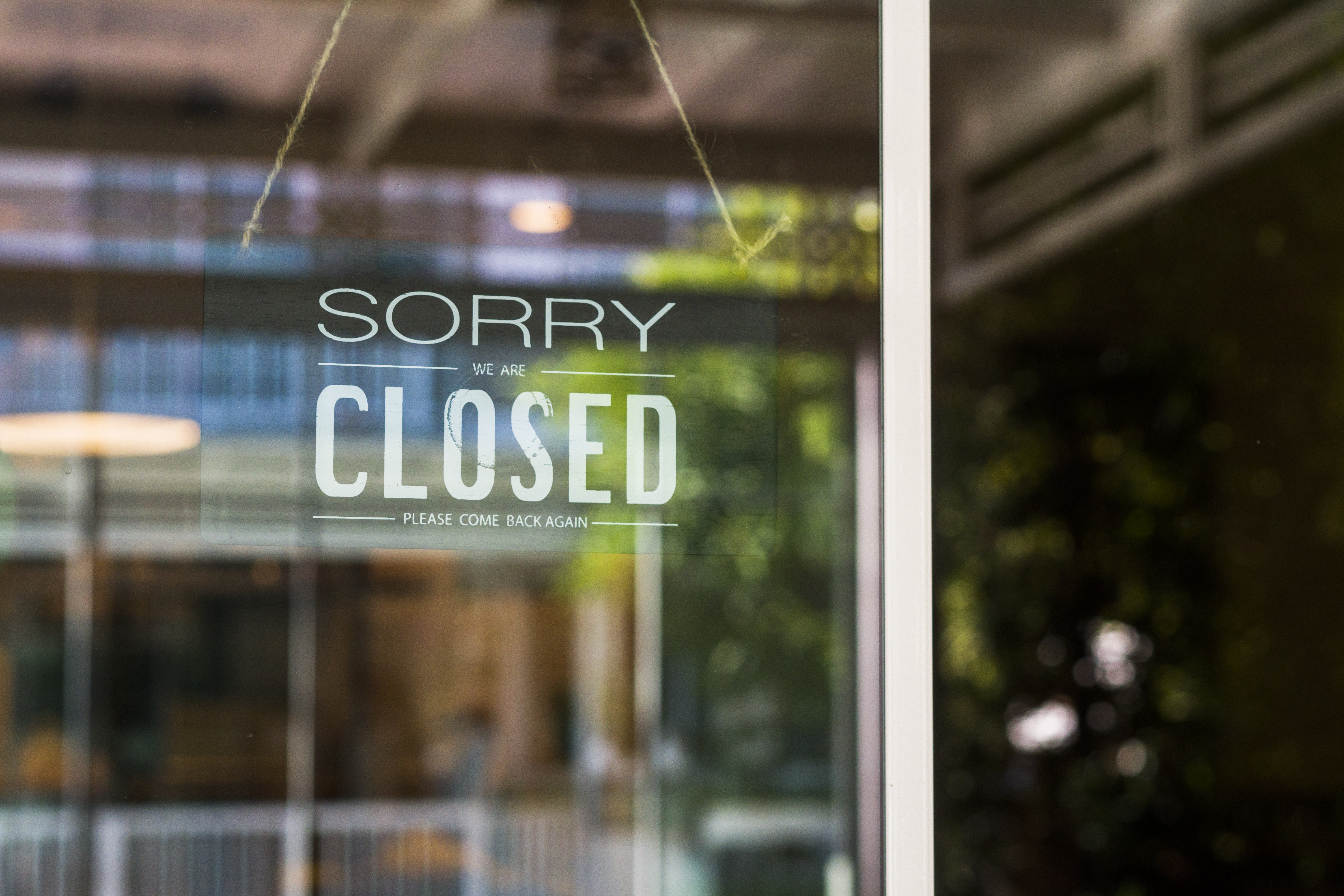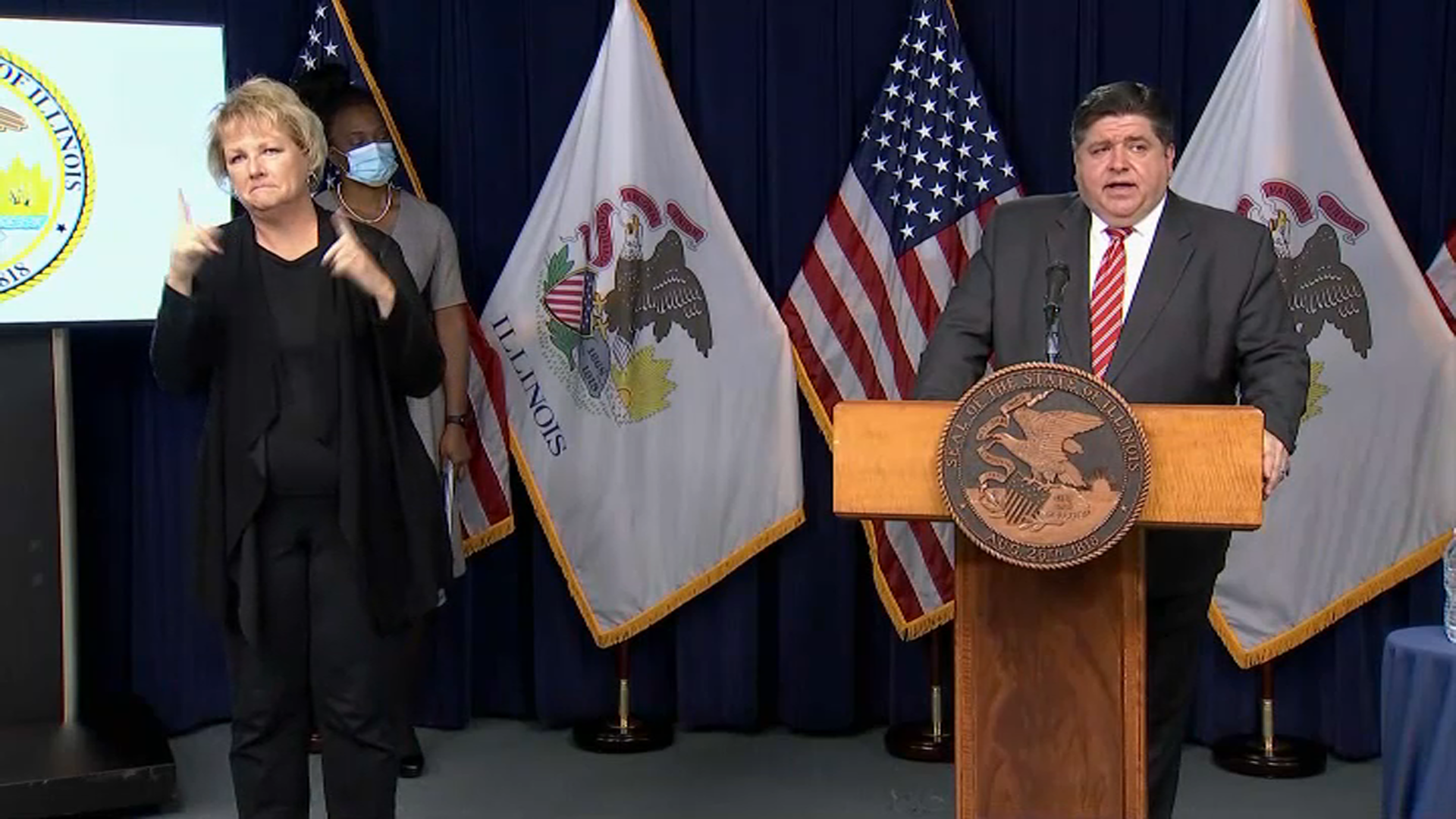Republican lawmakers in Lake and McHenry counties, where increased coronavirus restrictions are set to begin Saturday, say they want to see data proving restaurants are a main contributor in coronavirus spread in their region.
The increased restrictions imposed by the state on Region 9, among several others, includes the suspension of indoor dining and bar service and a limitation on gathering sizes, which the governor and public health officials have said aims to "cut down on some of the highest high-risk activities until we bring down the positivity rate in a region once again."
The lawmakers asked for data proving such restrictions are merited and questioned why casinos are allowed to operate at reduced capacity but restaurants cannot.
“Our local health departments were told by the administration early during this pandemic that mitigation efforts would be localized, based on the data and reflective of where outbreaks are happening,” Sen. Dan McConchie (R-Hawthorn Woods) said in a statement. “Instead, the state is using a cookie-cutter approach and not localizing their response as promised based on contact tracing data. Why are we penalizing restaurants when local monitoring says they are not the primary culprit to increased COVID rates?”
Similarly, Rep. Tom Weber in Lake Villa said the 64th District's data does not indicate bars and restaurants are a main source of spread.
“Before we tell our restaurant and bar owners that they are basically ‘not essential’, we need to have confidence in the metrics that are being used to single them out," Weber said in a statement. "If the governor wants our help in supporting the resurgence mitigations, he needs to provide the data we’ve been asking for.”
Already, several restaurants in multiple Chicago-area counties have vowed to defy the order and one restaurant in Geneva won a temporary court order that prevents state and local officials from enforcing the indoor dining ban.
“If we push people out of restaurants where there are regulations, people will gather privately where there is no regulation,” Rep. Dan Ugaste (R-Geneva) said in a statement. “People are going to gather. We should help them do that responsibly.”
Chicago Mayor Lori Lightfoot has also questioned the decision to shut down indoor dining.
“I'm not sure that we're reaching the right people with the restrictions that are going to be imposed by the state and that's my concern,” she said during a recent interview.
While Pritzker and Illinois Department of Public Health Director Dr. Ngozi Ezike have presented research that shows bars and restaurants are one of the primary locations where coronavirus is spreading, Lightfoot warned that the greater challenge is posed by what individuals are doing in their own homes.
“The truth is that where we're seeing the greatest challenges is in people's homes, in social settings that are not public,” she said. “That's harder to regulate to be sure but that's at least in Chicago where we're seeing the challenges. Two-thirds of the people that are testing positive and are talking to our case investigators are telling us that they got it from somebody that they knew and that they got it in a home or other social setting that's not in public.”
Still, Pritzker's office said the state was not inclined to make exceptions to its guidelines.
"Unfortunately, the virus doesn’t make exceptions, and it would be ill-advised to make exceptions to the rules we put in place as the best mitigations to stop the spread," a spokeswoman for the governor said in a statement.
"As the CDC has noted, bars and restaurants are major places of transmission risk. We’ll continue to provide support to businesses that are hard hit through our $630 million in grants," she continued.
Nine of Illinois' 11 regions will be under increased coronavirus restrictions by the end of the weekend, including in Lake and McHenry counties.
“The rate of new infections is surging in our region—a steeper curve than we saw in the spring,” Mark Pfister, executive director of the Lake County Health Department, said in a statement. “We successfully flattened the curve then, and we can do it again. Our success depends on all businesses and residents doing their part, participating with contact tracing if you are called, and being extremely cautious to eliminate chances for this virus to spread. Please do not let your guard down in social settings, even around close friends and family who don’t live in your home.”
The full list of new restrictions include:
Bars
- No indoor service
- All outside bar service closes at 11:00 p.m.
- All bar patrons should be seated at tables outside
- No ordering, seating, or congregating at bar (bar stools should be removed)
- Tables should be 6 feet apart
- No standing or congregating indoors or outdoors while waiting for a table or exiting
- No dancing or standing indoors
- Reservations required for each party
- No seating of multiple parties at one table
Restaurants
- No indoor dining or bar service
- All outdoor dining closes at 11:00 p.m.
- Outside dining tables should be 6 feet apart
- No standing or congregating indoors or outdoors while waiting for a table or exiting
- Reservations required for each party
- No seating of multiple parties at one table
Meetings, Social Events, Gatherings
- Limit to lesser of 25 guests or 25 percent of overall room capacity
- No party buses
- Gaming and Casinos close at 11:00 p.m., are limited to 25 percent capacity, and follow mitigations for bars and restaurants, if applicable
"I know this virus is hard on everyone," Pritzker said. "But this battle isn’t going away by itself. We have to manage our way through it with the tools we have available to us. And there are many of those tools that nearly everyone in our state has available to join the fight."
Region 9's average positivity rate stood at 8.4% Wednesday, state officials said, marking an increase from 4.8% in September and 3.1% in June. Pritzker's office said coronavirus-related hospital admissions have also increased in that timeframe - now three times as high as in September and five times as high as they were in June.
“With Region 9 being added to the list of regions in mitigation, we are getting close to the entire state implementing mitigation measures,” Illinois Department of Public Health Director Dr. Ngozi Ezike said. “This is not just a warning, but a call to action. We continue to move backwards, losing all the ground we had gained over the summer. We turned the state around once, let’s do it again. Limit your potential exposures by wearing a mask, physically distancing, and limiting in-person gatherings. It will take all of us working together to beat this virus.”
The state health department said it plans to track the positivity rate in Region 9 over the coming days "to determine if mitigations can be relaxed, if additional mitigations are required, or if current mitigations should remain in place."
The enhanced restrictions may be lifted if the region's positivity rate averages 6.5% or lower and if there is a decrease in hospital admissions for COVID-19-like illnesses over a three-day period, and if the average hospital and ICU bed availability is greater than 20% for seven days.
If the positivity rate continues to climb and hospital admissions increases for seven out of 10 days, more stringent mitigations can be applied, state officials said.
“I know that people are fed up with wearing masks and socially distancing – I am, for sure. But we cannot lower our positivity rate and lift these new restrictions by wishing them gone – we need to work together," McHenry County Board Chairman Jack Franks said in a statement. "We need to follow the CDC guidelines of masking, washing hands and maintaining 6-foot distance. Working together, we’ll get through this quicker. We owe it to our small businesses and our neighbors to do everything we can.”



